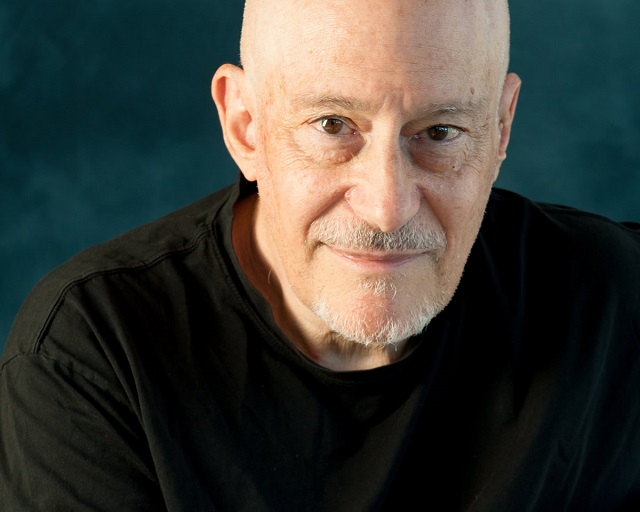*This is the second of a two-part interview. Read part one here.
~
An Interview with Shinzen Young, the author of The Science of Enlightenment.
I think many people see meditation practice as a means to achieve something—namely “enlightenment”—that’s seen as a state of permanent and blissful detachment in which you don’t have to deal with the ordinary world. In other words, you detach from the world and get enlightened so that you feel no pain.
Shinzen: I don’t use the word detachment; I prefer equanimity. Detachment has more to do with a relationship to objective circumstances, wherein you stop pushing and pulling on the world. But we don’t actually want to be detached from the world, becoming totally indifferent or apathetic to unpleasant circumstances, political or otherwise.
We depend on our senses to tell us what those circumstances are, and equanimity is our relationship to the senses. It’s a kind of “detachment” in the sense that you stop pushing or pulling on the natural flow of your sensory experience, but that actually allows you to have a more complete experience of your senses.
So, instead of detaching from pain, you experience a heightened richness of pain, with diminished suffering. That can even allow you to be happy in the midst of pain, which might otherwise make you very unhappy.
What’s the connection between mindfulness and selflessness?
Shinzen: As experiences become more and more mindful, an interesting thing happens: your sense of “self” changes. Some people call it “no-self” or selflessness, while others call it “finding your true self.”
What these seemingly contradictory ideas both point to is that with mindfulness, the self becomes more elastic.It can feel infinite at times, and at other times it can feel like it’s collapsing into nothingness. Or it can assume any size in between.
To go back to the metaphor of the phases of water, most people experience “self” in a frozen state. As a result, they often don’t like themselves. The more fluid and mindful our state of “I am-ness” is, the less it’s bound to suffering. It’s when you’re bound to the frozen self that you’re more likely to seek anesthetizing experiences, or think about killing yourself, or blame external circumstances for all your suffering.
Then, you cannot escape into your own discomfort, or regard it as part of the richness of life. Discomfort becomes your enemy, to be avoided at all costs. And that’s when your behaviors become driven and distorted.
I’m not saying that most people’s behaviors are driven and distorted in a major way. Perhaps most people are driven and distorted only in little ways, but here’s the problem: there are a lot of human beings, and there’s a lot of time. When you have many human beings acting in ways that are slightly distorted and driven over a long period of time, the effects can pool into monstrous events.
How did Hitler arise? He was not just a lone sociopath, but a product of millions of people in Germany not knowing what to do with their suffering, and eventually driving themselves into horrendously distorted behaviors as a solution.
We saw a similar effect in the last presidential election, when Trump bragged that he could shoot someone in Times Square and not lose any of his core voters. Unfortunately, it appears he was right about that. Obviously, millions of people have cheered on his negative attitudes and behaviors because they’re not shocked or even disturbed by them. They don’t recognize his distortions as anything unhealthy.
Shinzen: Whenever I see a situation in the world that seems horrible, the first thing I think is, “Looking deeply, what caused this?” It’s always human beings trying to do the right thing, but choosing their actions based on suffering. That’s how trying to do the right thing evolves into an horrifically wrong thing.
So then, I look at myself and say, “I want to be damn sure that my experience of rage, terror, grief, shame, helplessness, or confusion is as mindful as I can make it.” Otherwise, I’ll be in the same boat as all the people who are driven by their suffering.
But meditation practice is not an escape or medication for whatever is bugging you. In fact, it will lead you to experience more intensely the pain or discomfort that’s present in your life. It’s the degree to which you suffer that will be reduced.
Subjectively, you’ll be bothered less by whatever is going on in your life, personally or politically; objectively, you’ll behave better and be more effective in dealing with all of life’s situations.
All that may be hard to believe if you don’t already have mindfulness experience, but I’m duty-bound to say something that’s even harder to believe. We’ve established that as you learn to bring a state of concentration, clarity, and equanimity to inner and outer sensory experience, that sensory experience goes through a phase shift, similar to ice melting. This phase shift affects your sensation of self, making it less hard and inflexible, but it also affects your sensation of the world. It causes a healthy breakdown of the fundamental barriers between “inside” and “outside,” which is commonly called oneness.
That may sound like a cliché, but it’s actually an abiding reality for the mindfulness practitioner. Because one’s inner state of “self” is more fluid, anything that’s ordinarily seen as “other” becomes not-so-other. In fact, you become aware that you, and the things or beings in front of you, are constantly arising and returning to a shared spiritual source. “Self and scene” are in fact one and the same.
This phase shift into oneness has benefits that one might not expect. Let’s say, for instance, that every time you see Donald Trump, you’re besieged with fear, loathing, and aversion. You’re suffering intensely just from being reminded of him on a daily basis. But if you are also daily experiencing some degree of oneness, you will have the distinct sensation, if only for an instant, that Spirit is loving you and Donald Trump into existence, right then and there. After that moment of oneness, your normal suffering reactions may kick in.
But in a mindful state, love always comes first. I’m not talking about emotional love or romantic love, but true love, wherein you experience the Source that is loving you and the other into existence. If that perception always precedes your sensory reactions, it doesn’t mean you won’t have those reactions. You’ll still loathe and fear Donald Trump, if those are your honest reactions. But you will have no choice but to love him, deeply and authentically, as well.
If you are able to love everything deeply, then you can stride through this world like a colossus, not suffering even when you are face to face with demons.
Not suffering, despite all your discomfort, means you will be able to act optimally to make the world a better place. So, what I have to say to all my friends who are freaked out by Donald Trump is: love deeply so that you can act effectively.
Besides its tragic choice of a chief executive, America is suffering from a veritable plague of addiction to painkillers. Would you say that mindfulness is the polar opposite of addiction?
Shinzen: Yes, absolutely—the word I use is “drivenness.” Addictions are either an attempt to escape discomfort or increase the experience of pleasure, but addictions ultimately fail people on both scores. By contrast, mindfulness skills enable you to appreciate discomfort as part of the richness of life, and also enhance the experience of pleasure in a way that’s truly satisfying. Because you live in an increasingly “high” state, you don’t have to get high again and again, in between phases of despair or depression.
Mindfulness enables exceptional fulfillment from relatively minor pleasures, whereas the addict has to multiply or intensify stimuli just to get the same amount of fulfillment as the time before.
At some point in your life, something will happen that really gets to you: you get sick or injured, or someone betrays you, or the wrong person ends up being President. Sooner or later, something serious is going to happen.
If you have prepared by training yourself in the three fundamental skills of concentration, sensory clarity, and equanimity, then you’ll be able to use your discomfort the same way the monastics, the renunciates, and the shamans have historically done in their traditions.
You won’t have to go to a monastery to escape discomfort, because you’ve learned how to escape into discomfort, and thus the monastery comes to you.
Life itself will deliver enough intense practices for you to grow from, if you’re prepared to receive them.
~
*This is the second of a two-part interview. Read part one here.
~
Relephant read:
There is one good thing about a President Trump.
~
Author: D. Patrick Miller
Images: Pixabay & courtesy of Shinzen Young
Editor: Khara-Jade Warren
Copy Editor: Nicole Cameron
Social Editor: Sara Kärpänen







Read 0 comments and reply